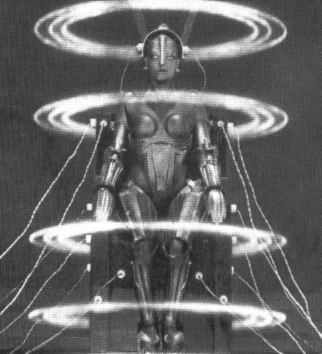 While it isn't my official job title, in many ways I'm a mechatronics technician.
While it isn't my official job title, in many ways I'm a mechatronics technician....consider the course work in Pennsylvania's Industrial Maintenance Training Center's curriculum. It includes the four areas today considered branches of mechatronics: servo-controls and control theory, mechanical drives, information technology, and electronics. 'Firms with advanced manufacturing equipment are seeing a need for this kind of multi-skilled individual. There are too many technologies involved to employ specialists in each of them,' explains Campbell...Consider this trend of ignoring manufacturing training a sign of Empire Syndrome. Instead of relying on what they can produce domestically, the empire becomes accustomed to importation of the goods we need from lower cost producers. It's a sign of hubris. The domestic economy of an empire decides to focus on glamorous, cutting edge, and even frivolous endeavors rather than to stoop so low as to shovel shit which can be spread as fertilizer to grow the food we need. The perpetual outsourcing of menial tasks increases domestic dependence on imports while providing a great reward to foreigners who meet our demands. Those foreign providers will step up their education and training to accommodate the consumers.
IMTC and institutions like it in other parts of the country are starting to get attention from manufacturers. It's high time. 'People in the U.S. are insulated. They don't understand that we aren't keeping up with other countries on training for advanced manufacturing,' says Campbell. Though it has a reputation as a low-wage area, 'Even Mexico is teaching students advanced industrial skills.'
Programs like those sited in the article are too little too late. The United States used to be the world's largest manufacturer. Now the giant has blinked, opening its eyes on a world where it is wondering how it lost its advantage and how to get it back. It can't be taken back. A giant requires momentum and that is lost.
This is hardly a bad thing. The United States prides itself in a form of government where the top official serves a maximum term of eight years, most only four (or less). The change in leadership allows for a continual change of focus. Developmentally as a nation, it doesn't matter if you like the top administration or not. Your own focus may change from one of blind following to that of vocal dissent. The view changes and with it, the country. As a race perpetually striving forward, a change in manufacturing leadership allows us to again change focus, reassess the processes that are behind what we consume, and make changes in ourselves and our world.
The new giant is China. US companies and consumers were the driving force behind much of that momentum. While their processes and practices are still catching up with those used in more well developed areas, they've got the momentum. They can build new infrastructure rather than having to contemplate expensive upgrades to existing conditions. When their labor movement hits, and it will, they can learn from the experiences of the European and American labor movements, building on their successes and hopefully avoiding many of their mistakes.
Even if the new giant is a raging beast of terror, it will give the rest of the world a chance to unite as equals, not under bullying threats, to topple the monster. And we'll still need mechatronic technicians.
No comments:
Post a Comment